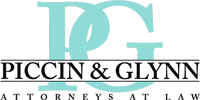Determining liability and seeking compensation can be legally complex in a car accident. It can be more complicated when the accident involves a juvenile driver in Florida.
Unlike adult drivers, juveniles under 18 are subject to special considerations under Florida law.
Parental responsibility laws in Florida
In Florida, the court can hold parents or guardians liable for the actions of their minor children. If an underage driver causes a car accident, their parents may be liable for damages. Proving parental liability requires showing that the parents were negligent in supervising or entrusting their child with a car.
Florida’s comparative negligence system
Florida follows a comparative negligence system, which means each party involved in a car accident is liable for a share of the damages. The degree of fault for each party determines the share of the damages.
When the accident involves a juvenile driver, their age and level of driving experience may factor into the assessment. If the minor driver violated traffic laws or drove recklessly, their contribution to the accident may be significant.
Challenges in pursuing legal action
Suing an underage driver for damages resulting from a car accident in Florida presents unique challenges. Juveniles are typically not financially independent, which can complicate efforts to recover compensation. Furthermore, navigating the legal process involving minors requires adherence to specific procedural requirements and court approval for any settlements reached.
Seeking compensation through insurance
Seeking compensation for car accident damages may include filing a claim with the insurance company. Florida law requires drivers to carry minimum insurance coverage, which may provide compensation for medical expenses, property damage and other losses incurred in the accident.
Car accidents involving juvenile drivers in Florida present legal complexities that require careful navigation. Understanding parental responsibility laws and Florida’s comparative negligence system is important for individuals seeking compensation. By seeking legal guidance, individuals can better navigate the process.

